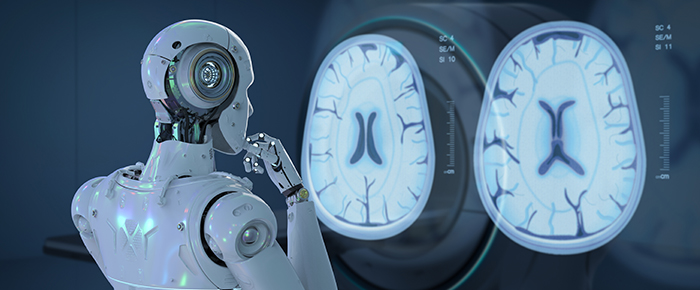
AI Advances Unlock New Frontiers in Medical DiagnosisAI Advances Unlock New Frontiers in Medical Diagnosis The rapid advancement of artificial intelligence (AI) is revolutionizing healthcare, particularly in the field of medical diagnosis. AI algorithms are now capable of analyzing vast amounts of medical data, identifying patterns, and making predictions with unprecedented accuracy. Pattern Recognition and Anomaly Detection AI algorithms excel at recognizing patterns and detecting anomalies in medical images. This capability enables earlier detection of diseases, such as cancer, which often manifest as subtle changes in tissue structure. By analyzing thousands of patient images, AI can identify even the most minute deviations from normalcy, increasing the likelihood of early intervention and improved outcomes. Diagnostic Support and Second Opinions AI algorithms can serve as valuable diagnostic aids for physicians. They can provide real-time feedback during medical examinations, highlighting areas of concern and suggesting potential diagnoses. This can improve the accuracy and efficiency of diagnostic processes, reducing the risk of misdiagnosis. Additionally, AI can generate second opinions, providing an independent perspective and helping to avoid biases or oversights. Personalized Medicine and Precision Diagnosis AI algorithms can analyze individual patient data to develop personalized treatment plans. By taking into account genetic factors, lifestyle choices, and medical history, AI can help identify the most appropriate treatment options for each patient. This precision diagnosis can improve treatment effectiveness and reduce the risk of adverse side effects. Accelerated Drug Discovery and Development AI is transforming the drug discovery and development process. Algorithms can analyze vast chemical databases to identify potential new drug molecules. They can also predict the efficacy and safety of these molecules, accelerating the drug development pipeline. This has the potential to bring new treatments to patients faster and at a lower cost. Advancements in Medical Imaging AI is also having a significant impact on medical imaging. Algorithms can enhance the quality of medical images, reducing noise and improving anatomical details. This can aid in the detection of subtle abnormalities, such as micro-fractures or small tumors. AI-powered image reconstruction techniques also enable lower radiation doses during scans, improving patient safety. Challenges and Future Directions While AI advances offer immense potential, there are also challenges to address. These include ensuring the accuracy and reliability of algorithms, addressing ethical concerns, and ensuring equitable access to AI-powered diagnostic tools. However, the rapid pace of AI development suggests that these challenges will be overcome in the near future. Conclusion The integration of AI into medical diagnosis is unlocking new frontiers of healthcare. By enabling more accurate and timely diagnoses, AI is improving patient outcomes and paving the way for more personalized and effective treatments. As AI technology continues to evolve, we can expect even greater advancements that will revolutionize the way we detect and treat diseases.
Posted inNews